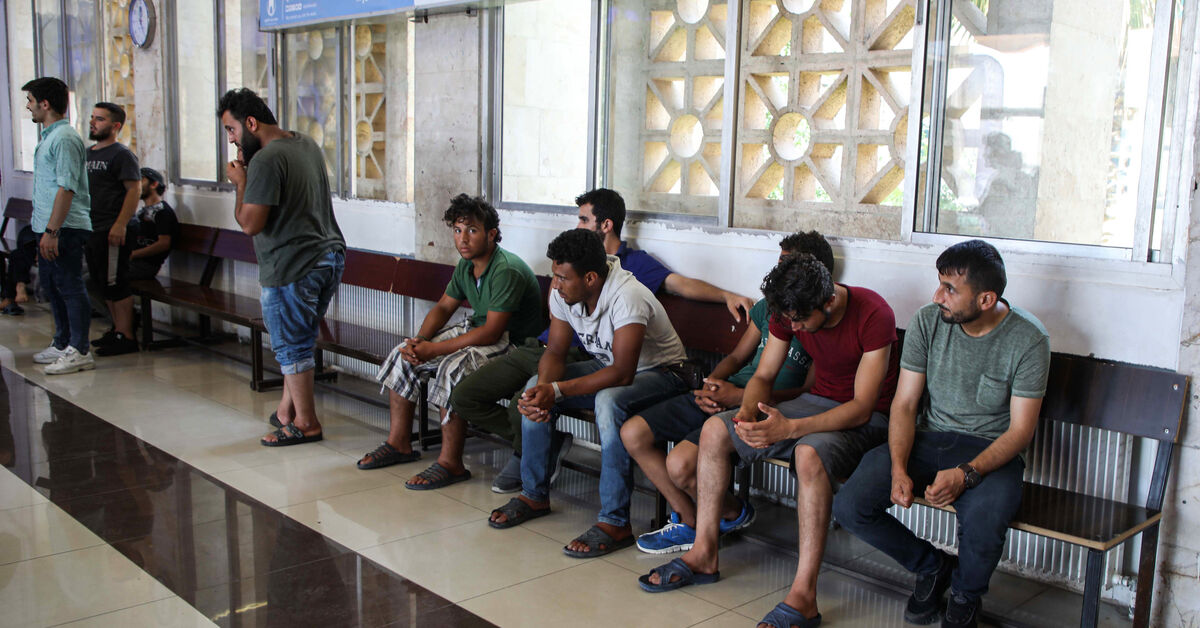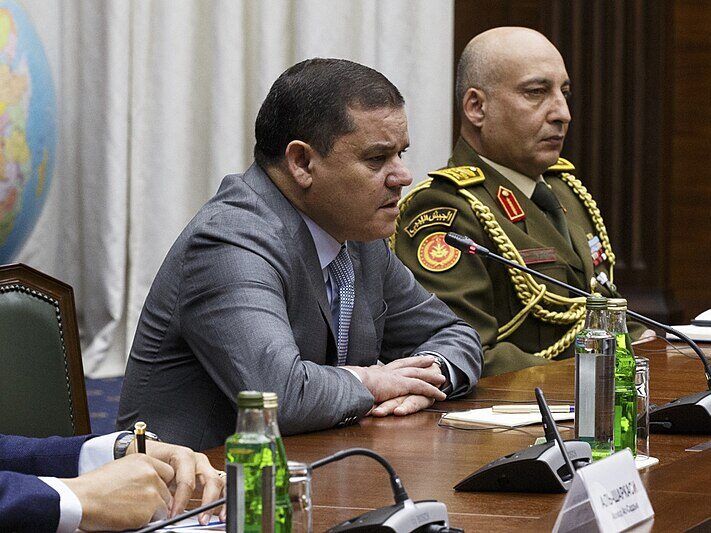[Feature] Bülent Keneş: Nato must call Turkey’s bluff on my extradition
As a Turkish journalist in exile, harassment by Ankara has been a routine for me, despite my family finding refuge in Sweden six years ago.
However, things escalated dramatically last Tuesday (8 November) when Turkey’s president Recep Tayyip Erdoğan mentioned my name at a joint press briefing with Swedish prime Minister Ulf Kristersson in Ankara.
-

Turkish president Recep Tayyip Erdoğan (r) with Swedish prime Minister Ulf Kristersson in Ankara (Photo: tccb.gov.tr)
“Extradition of this terrorist [me] is of utmost importance for us,” Erdoğan said, apparently in exchange for saving Sweden from a Turkish veto in its rightful quest for Nato membership.
I’m accustomed to being called names by Erdoğan’s authoritarian regime, while I stand for democracy and freedoms which they undermine.
But it doesn’t make me particularly happy to be at the forefront of a major strategic discussion about the reconstruction of geopolitical architecture in response to serious threats emanating from Russia.
I guess this is what we all have to deal with so long as Turkey, a strategically crucial country, is run by such an incurably selfish and thin-skinned despot who goes largely unchallenged by the West.
Finnish and Swedish authorities were falsely encouraged back in June by initial assurances from Ankara about not being an obstacle to ratification of their Nato membership.
But as a veteran student of Erdoğan’s politics, my gut feeling was just the opposite.
No way a horse trader such as Erdoğan could have let this process become a breeze for Nato and give away Turkey’s leverage for free.
He wouldn’t care one bit how significant it is for global security and the West that Sweden breaks with its 200 years policy of neutrality.
However, leaders of the free world repeatedly seem to fall in a credibility trap with Erdoğan, when in fact he acts as if he is Russian president Vladimir Putin’s Trojan horse inside Nato.
The world must have learned so far that most people Erdoğan accuses of terrorism have nothing to do with terrorism.
Clearly, I’m not a terrorist, either.
My only ‘crime’ was having supported Erdoğan-led governments in his first decade (between late-2002 and mid-2011), when Ankara seemed genuine about democratic reforms and integrating Turkey with the European Union, as well as adopting a policy of zero-problems with its neighbours.
Pro-democracy journalists, intellectuals and organisations in Turkey and abroad were my partners in crime back then.
I started getting suspicious about Erdoğan’s authoritarian intentions after his powers were dramatically bolstered by a constitutional referendum majority in 2010 and an overwhelming election victory in June 2011.
The more I criticised his illiberal policies, the more intimidation, defamation and lynching campaigns, character assassinations, threats, snd (so-called) legal investigations followed.
Erdoğan gradually took control of the media and intensified pressure on independent journalism.
I found my passport confiscated, was detained a few times and eventually imprisoned in 2015 for five days.
The Zaman media group, including the English daily Today’s Zaman that I worked for, was violently seized in March 2016.
The controversial coup attempt on 15 July 2016, called a “gift from God” by Erdoğan, paved the way for a further crackdown on opposition groups and independent journalists.
With no hopes left for my personal safety and ability to continue my journalist career in an honourable way in Turkey, I had to flee.
Erdoğan’s mentality
But Erdoğan is a man with deep grudges. He personally knows and hates me (the feeling is mutual).
However, I don’t think using me and other colleagues in exile as a bargaining chip during the Nato enlargement process has too much to do with that.
I am merely a talking point for him at this moment, so that he can portray himself as a global leader, who is potentially able to play with the destiny of other nations and the wider world.
Of course, it wouldn’t hurt for him, if he was able to toss me into his large personal collection of jailed journalists in Turkey.
But what he really aims is to project a sense of magnificence, like the early Ottoman-era sultans, and to enjoy watching the drama he creates in the West and reaping its fruits in terms of domestic politics and international relations.
Like an adolescent who wants to attract attention and craves affection by behaving badly, Erdoğan needs to be noticed by the West, especially the US.
And, unfortunately, he’s been playing such games with the West for too long, without hearing any adult talk and serious repercussions in return.
Over the years, with increased experience and self-confidence, Erdoğan excelled in his game of chicken.
But the West can outplay Erdoğan, if leaders stand firm and act in solidarity.
Contrary to the prevalent view and fear in many Western capitals, Turkey needs the West more than the West needs Turkey.
Turkey’s weak economy and security is largely dependent on the West — despite popular anti-American sentiment, the people of Turkey are pragmatic enough when it comes to relations with the West.
According to polls, a decisive majority still supports Turkey’s EU membership.
A major confrontation with the West would not be popular in the country and Erdoğan is only bluffing when he bullies the West. He will step back when he is seriously challenged.
Adult intervention
This is why the major powers in Nato, such as the US, the UK, Germany, and France should intervene — so that Sweden and Finland are not left alone to deal with Erdoğan’s Nato blackmail.
Not only their national interests, but also the Nato charter, which stresses the need to safeguard freedoms, democracy, and rule of law, warrant that.
The G20 Summit in Bali this week can be a good opportunity to deliver a strong and unified message to Erdoğan privately, or if necessary, publicly.
His total disregard for Nato’s strategic interests and values cannot be tolerated.
Erdoğan should not be allowed to export his anti-democratic, illiberal, and autocratic practices to Western nations.
Such a firm stance would also send a strong message to Putin’s aggressive regime, as the Russian president is the one who benefits most from Erdoğan’s misbehaviour, which creates uncertainty, discord, and vulnerability inside the transatlantic alliance.

![[Feature] Bülent Keneş: Nato must call Turkey’s bluff on my extradition [Feature] Bülent Keneş: Nato must call Turkey’s bluff on my extradition](https://media.euobserver.com/bc3d586b0859a0b4ba32970b607a799d-800x.jpg)

